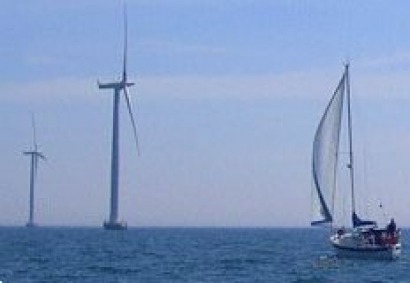
According to the US Court of Appeals for the District of Columbia, the FAA, which regulates air travel in the states, misinterpreted its own rules when assessing the project, which, since it was first proposed a decade ago, has been billed as the nation’s first offshore wind farm.
In its 14-page decision, Senior Circuit Judge Stephen Fain Williams held that the FAA did not adequately determine whether Cape Wind's 440-foot tall turbines would pose a danger to pilots relying on sight rather than by relying on their aircraft’s instruments.
The court vacated the government's "no hazard" finding and sent the case back to the FAA, agreeing with plaintiffs that "the FAA did misread its regulations."
The court’s decision stemmed from an appeal of the FAA finding by the town of Barnstable and a local environmental group, the Alliance to Protect Nantucket Sound.
The $2.6 billion project has been a flashpoint for controversy ever since the proposal to erect wind turbines in Nantucket Sounds off Massachusetts was announced. Among those who have opposed the project are the late US Senator Edward Kennedy and members of his extended family.
In a statement posted on the project’s web site, Cape Wind’s backers said, “The FAA has reviewed Cape Wind for eight years and repeatedly determined that Cape Wind did not pose a hazard to air navigation. The essence of today’s court ruling is that the FAA needs to better explain its Determination of No Hazard. We are confident that after the FAA does this, that their decision will stand and we do not foresee any impact on the project’s schedule in moving forward.
“Really, today’s court decision doesn’t change things very much because our existing Determination of No Hazard (the 3rd we have received since we started with this project) was set to expire in just 90 days and we were going to have to re-apply at that time anyway, this lets us begin that process sooner,” they added.
Jim Peters, an FAA spokesman, said the agency was reviewing the court decision.
For additional information:

